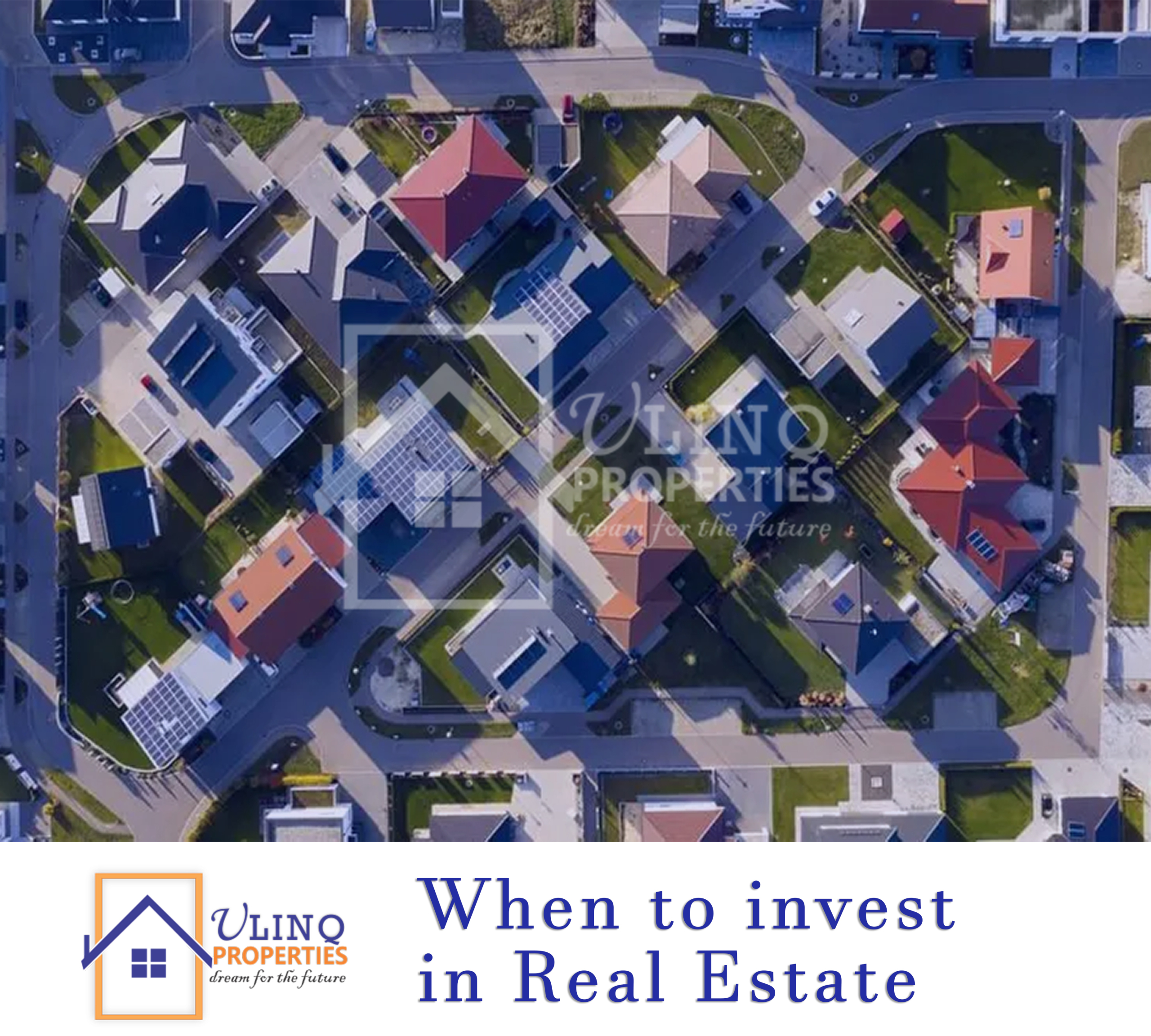Investing in real estate can be a lucrative venture, but timing is crucial to maximize returns and minimize risks. Here are some key factors to consider when determining the best time to invest in real estate:
1. Market Conditions
- Buyer’s Market: This occurs when there are more properties for sale than buyers. Prices are typically lower, and buyers have more negotiating power.
- Seller’s Market: This happens when there are more buyers than available properties. Prices are usually higher, and sellers have the advantage. While it might be harder to find bargains, the value of your property might appreciate faster.
2. Economic Factors
- Interest Rates: Lower interest rates make borrowing cheaper, reducing your mortgage payments and making investments more affordable.
- Economic Growth: A strong economy typically leads to higher employment rates and increased demand for housing, which can drive up property values and rental income.
3. Personal Financial Situation
- Stable Income: Ensure you have a steady income to cover mortgage payments, maintenance costs, and potential vacancies.
- Down Payment: Have enough savings for a down payment. A larger down payment can reduce your mortgage payments and increase your equity.
- Emergency Fund: Maintain a financial cushion to handle unexpected expenses, such as repairs or temporary vacancies.
4. Seasonal Trends
- Spring and Summer: These are traditionally busy times in the real estate market, with more properties available. However, competition among buyers can be higher.
- Fall and Winter: These seasons typically see fewer transactions, which can lead to better deals and less competition. Sellers may be more motivated to sell, potentially leading to lower prices.
5. Local Market Conditions
- Job Market: Areas with growing employment opportunities often see increased demand for housing, which can drive up property values and rental rates.
- Development Plans: Investing in areas with planned infrastructure improvements or commercial developments can lead to property appreciation over time.
- Rental Demand: In areas with high rental demand, investing in rental properties can provide a steady income stream.
6. Property-Specific Factors
- Condition: Investing in properties that need renovations can be profitable if you have the skills and resources to improve them and increase their value.
- Location: Location is crucial in real estate. Properties in desirable neighborhoods, with good schools, amenities, and transportation links, are more likely to appreciate in value.
7. Long-Term Trends
- Demographics: Consider population growth, age distribution, and urbanization trends. For example, areas attracting younger populations or retirees might see increased demand for different types of housing.
- Technological Changes: Innovations such as remote work can shift demand toward suburban or rural areas.
8. Government Policies
- Tax Incentives: Look for tax benefits such as deductions for mortgage interest, property taxes, and depreciation.
- Zoning Laws: Be aware of zoning regulations that could affect the type of property you can buy and its potential uses.


